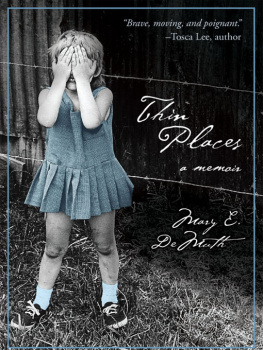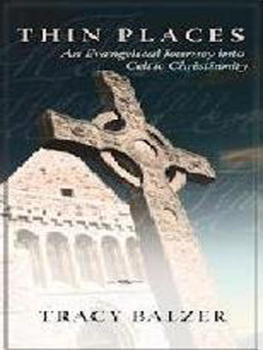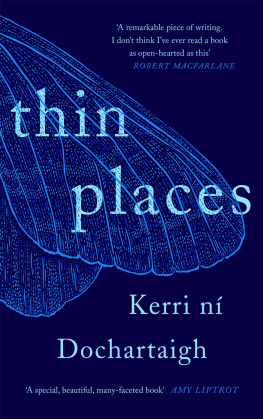Ann Armbrecht - Thin places : a pilgrimage home
Here you can read online Ann Armbrecht - Thin places : a pilgrimage home full text of the book (entire story) in english for free. Download pdf and epub, get meaning, cover and reviews about this ebook. City: Chichester, year: 2011, publisher: Columbia University Press, genre: Home and family. Description of the work, (preface) as well as reviews are available. Best literature library LitArk.com created for fans of good reading and offers a wide selection of genres:
Romance novel
Science fiction
Adventure
Detective
Science
History
Home and family
Prose
Art
Politics
Computer
Non-fiction
Religion
Business
Children
Humor
Choose a favorite category and find really read worthwhile books. Enjoy immersion in the world of imagination, feel the emotions of the characters or learn something new for yourself, make an fascinating discovery.

- Book:Thin places : a pilgrimage home
- Author:
- Publisher:Columbia University Press
- Genre:
- Year:2011
- City:Chichester
- Rating:5 / 5
- Favourites:Add to favourites
- Your mark:
- 100
- 1
- 2
- 3
- 4
- 5
Thin places : a pilgrimage home: summary, description and annotation
We offer to read an annotation, description, summary or preface (depends on what the author of the book "Thin places : a pilgrimage home" wrote himself). If you haven't found the necessary information about the book — write in the comments, we will try to find it.
Ann Armbrecht: author's other books
Who wrote Thin places : a pilgrimage home? Find out the surname, the name of the author of the book and a list of all author's works by series.
Thin places : a pilgrimage home — read online for free the complete book (whole text) full work
Below is the text of the book, divided by pages. System saving the place of the last page read, allows you to conveniently read the book "Thin places : a pilgrimage home" online for free, without having to search again every time where you left off. Put a bookmark, and you can go to the page where you finished reading at any time.
Font size:
Interval:
Bookmark:

Publishers Since 1893
New York Chichester, West Sussex
cup.columbia.edu
Paperback edition, 2011
E-ISBN 978-0-231-51829-1
Armbrecht, Ann.
p. cm.
ISBN 978-0-231-14652-4 (cloth : alk. paper)
ISBN 978-0-231-14653-1 (pbk. : alk. paper)
ISBN 978-0-231-51829-1 (e-book)
1. Yamphu (Nepalese people)NepalHedangaSocial life and customs.
2. Hedanga (Nepal)Social life and customs.
3. Armbrecht, Ann.
4. Women anthropologistsUnited StatesBiography.
5. Women anthropolgistsNepalHedangaBiography. I. Title.
DS493.9.Y36A76 2009
305.89549dc22
2008023537
CUP would be pleased to hear about your reading experience with this e-book at .
what is essential is invisible to the eye.

when nothing is unabsorbed.
that does not see you. You must change your life.

Font size:
Interval:
Bookmark:
Similar books «Thin places : a pilgrimage home»
Look at similar books to Thin places : a pilgrimage home. We have selected literature similar in name and meaning in the hope of providing readers with more options to find new, interesting, not yet read works.
Discussion, reviews of the book Thin places : a pilgrimage home and just readers' own opinions. Leave your comments, write what you think about the work, its meaning or the main characters. Specify what exactly you liked and what you didn't like, and why you think so.







